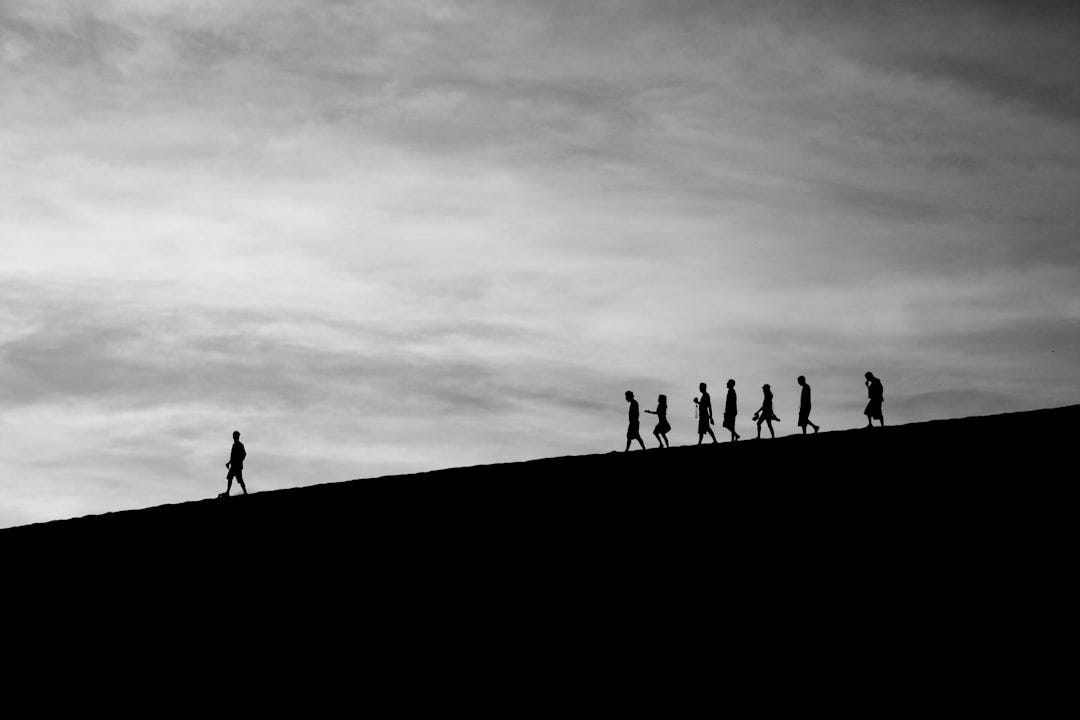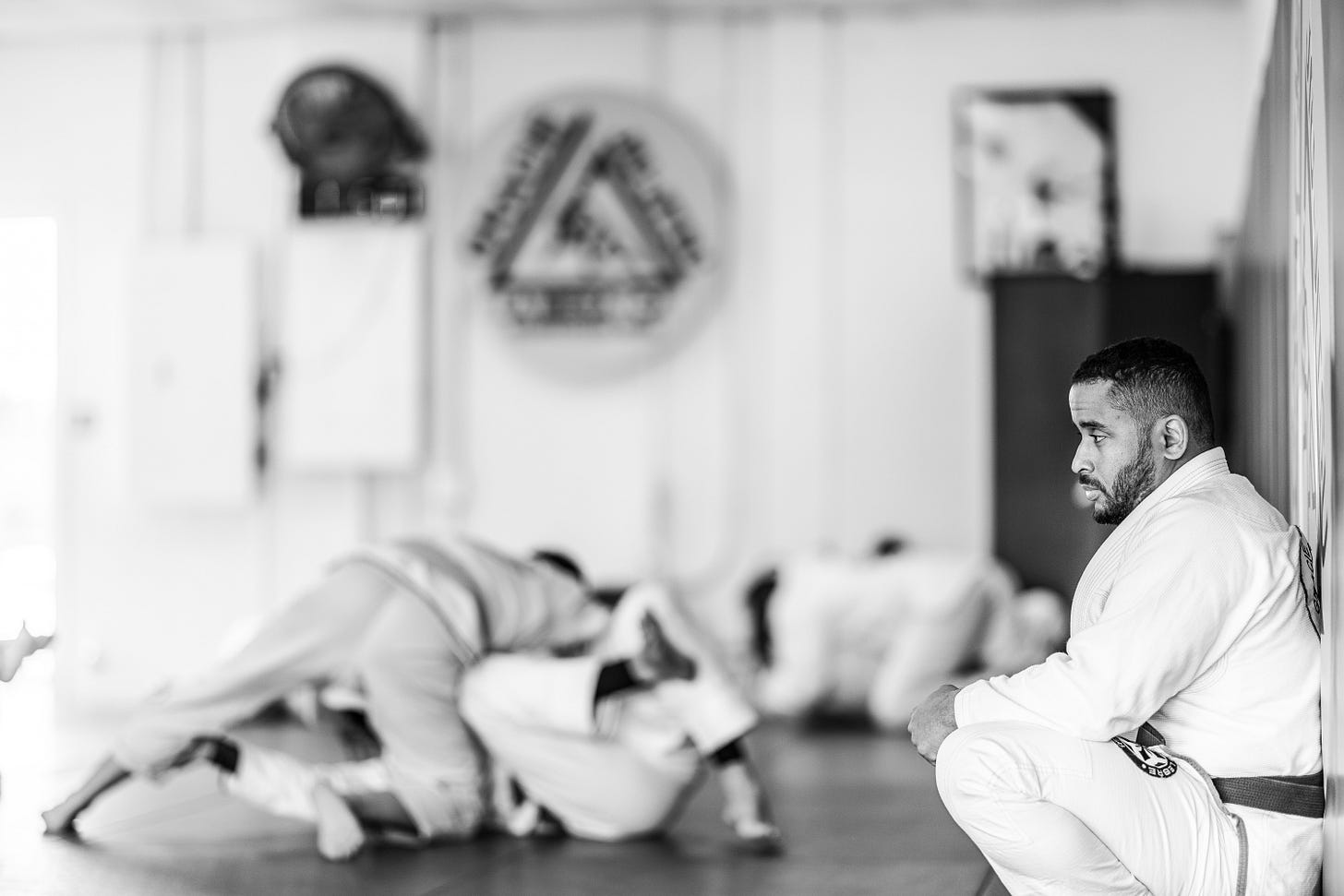How Toxic People Lead
Understanding and Recognizing The Traits Early
Leadership is critical to creating positive learning environments, especially in martial arts like Jiu-Jitsu, where trust between coach and student is essential. Yet, as any experienced coach or practitioner has observed, not all leaders wield their influence with integrity. Toxic individuals can sometimes find their way into leadership roles, shaping spaces in ways that stunt growth rather than foster it.

In the current climate, someone might ask, how does anyone get sucked into a toxic gym. Honestly, pretty easily if you’ve never gone through it yourself. If you spend any time on Reddit, you’ll routinely come across that post, “Am I in a cult” or “should I leave my gym?” It’s far more common than we think, and it’s difficult to spot it early.
Why Do Toxic People End Up Leading?
Academies aren’t run like your typical business. They are most often independently owned and generally run by people who have done nothing other than Jiu-Jitsu. There is no Human Resources Department and best practices are hardly part of the overall infrastructure of the business or culture.
Sole ownership is pretty common and the deepest skillset by the owner is that he or she is insanely good at Jiu-Jitsu. This creates a top-down power structure, where all the decisions are made by one person. If you’re someone who’s driven by having your ego stroked, this can be a recipe for disaster. Unfortunately in these set ups, there’s no one that will keep you in check when you make decisions.
Some common tactics include:
Charisma
When I first joined the gym, just like with most new relationships, everything looked great. The gym was clean, I didn’t seen any overt hostilities between anyone, and the instructors all seemed welcoming and trustworthy. I was always greeted with a smile, a pat on the back, and what felt very genuine.
Exploiting Power Dynamics
Once I started working for the gym and I was able to see behind the curtain if you will. This is when I saw elements of the power dynamics at work. In the beginning it was passive, things like, “How come you haven’t been to class?” Harmless at first. But when it became, “You need to come to my classes, I need to see you for promotions.” I would also hear things like, “I like that you’re loyal” or “You’re one of my guys.”
I also started hearing issues of reneged payments or altered agreements, that became very one sided. As you can imagine, always in the gym owner’s favor. Some accepted it out of not wanting to generate any waves. or hostilities.
Micro-Management Masquerading as ‘High Standards’
While most of my time, I was left alone, there were times when I would experience or see the micro management come out. An instructor would be told what they were teaching and how. Being coached in how to teach was one thing. I think many new instructors need that, but be told what to teach always felt wrong.
Some instructors would also be shunned from teaching techniques that were effective and popular. For example, we had an instructor that would review Danaher instructionals. The results were phenomenal for the students, but it didn’t go over well with the owner.
Toxic leaders often equate controlling behaviors with having “high standards.” They micromanage every aspect of others’ training, convincing their students or team that their overly scrutinous style is essential for success. This approach, however, leaves little room for growth and autonomy—two things that are crucial in Jiu-Jitsu or any skill-building environment.
Creating Dependency
These leaders will sometimes cultivate a relationship where the student feels they cannot succeed without them. This dependency stifles the student’s self-confidence, convincing them that the toxic leader’s approval is the only way forward.
As much as I love teaching and mentoring students, I don’t need them to feel dependent on me. I’m not the end all be all nor am I The Source. There are plenty of sources out there and I want my students to pursue what helps them most.
Selective Generosity and Conditional Kindness
Most of my conversations, especially the last few years at the gym, were always a bit confusing. Sometimes they were sprinkled with kindness, an uplifting word here or there, followed by a deep criticism or backhanded compliment.
I was maybe a Brown or Black at the time and starting to have a social media presence. Instead of receiving a flat out compliment for what I as sharing, he once told me, “What do you know about competing?” While I wasn’t a pro, I had competed extensively from White to early Purple. He then added just a few minutes later, “But what you’re saying is right.”
He had a way of keeping you off balance enough with your confidence that you never really felt comfortable about yourself. Personally I think it was tactic to keep you from knowing your worth and potentially leaving.
Recognizing Toxic Leadership in a BJJ Setting
In Jiu-Jitsu, where close physical interaction and personal growth are intertwined, the impact of a toxic leader is amplified. A toxic coach can quickly turn what should be a place of empowerment and learning into one of self-doubt and dread.
Here are some common red flags:
Favoritism: While we all have students we might gel more well, favoritism shouldn’t be exist. You don’t know how often I would hear, “You’re my guy, your loyal.” He was very selective about which groups/students he would correct when which would get ignored.
Inconsistent Feedback: I never knew where I was. While English was a second language for him, I don’t think that was the issue. The feedback you got was just based on his mood for the day and if he viewed you favorably or not. Asking for specific advice was often met with, “Just keep coming to class.”
Control Over Others’ Growth: Seminars at other gyms, cross-training, and even competing at certain competitions was discouraged. To the point that if you signed up to compete at an event that he didn’t support, he wouldn’t coach you.
How to Protect Your Environment from Toxic Leadership
For coaches and leaders who genuinely care about fostering healthy, productive environments, awareness of these traits is crucial. Here’s how I have been able to build a culture that reduces the likelihood of toxic leadership on my part or a toxic environment in general.
Transparency/Open Communication
I have a Q&A session at the end of each class. Students are encouraged to reach out to me via text/IM or in person with any concerns or questions. I send out a program survey every December for feedback. I want to know what my students are feeling. This is not a dictatorship, but a partnership.
That communication between student and instructor is paramount.
Growth over Perfection
I’m routinely studying leadership and the advantages of one class structure over another. I by no means feel that I’m perfect, nor do I want that to be the destination for my students. I live by the Infinite Mindset of getting better over time.
Foster Independence in Your Students
I encourage students to attend seminars, explore different coaching styles, and take ownership of their journey. I will even sponsor students knowing that a specific seminar would fit their game. By promoting self-confidence, you empower them to make decisions about their own learning, reducing the risk of dependency on any single leader. Students need to have a feeling of ownership over their game and journey.
Check Your Own Leadership Style
My leadership journey is continual. I never want to see myself as the expert on the subject because it changes over time or even shifts from one person to another. What might work for one generation of athletes doesn’t work for another. What might work for men, may not work for women. What works for your general student, may not work for students who are dealing with trauma.
I have to check my blind spots and make sure that my own ego remains controlled.
Last Thoughts
In martial arts, and in life, leadership is an honor that carries immense responsibility. Coaches and students alike benefit from learning to spot the red flags of toxic leadership early on, understanding the tactics toxic people use, and prioritizing healthier leadership principles.
As practitioners of Jiu-Jitsu, we aim to bring out the best in ourselves and others—let’s ensure our leadership reflects this goal, making the mats a place of safety, growth, and genuine support.
DFM Coaching is dedicated to helping you overcome mental hurdles and achieve your full potential in BJJ. Whether through in-person instruction, seminars, private lessons, remote coaching, or video analysis, I provide personalized support tailored to your needs. Keep pushing forward, and let’s grow together!


